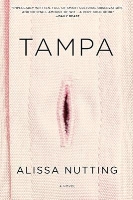Retro Review: The Constant Princess
/When I started this blog, I had been posting reviews on Goodreads for about 6 months. In the interest of having all of my book writing in one place, I will post one of these old reviews every Friday. They weren't written with a blog in mind, so please forgive the lack of summary and off-the-cuff tone.
2 stars. This is going to be a tricky one.
First things first: this is the only book I've ready by Philippa Gregory. So my opinion of this may change after reading others by her. We'll see.
Second: I realize that there is some controversy surrounding the supposed historical accuracy of these novels. In reading this one, the level of accuracy - or lack thereof - didn't bother me in the slightest. This book was never marketed as non-fiction, so I can't really take issue with the author's craftsmanship. And it IS craftsmanship. She's crafting a story of her own. In no way does she claim to be telling the true story of "what really happened." It's an entertaining interpretation of events that may or may not have happened hundreds of years ago. All I care about is the writing.
So, the writing. Hmm. Like I said, this is going to be tricky. I was so infuriated by some of the events depicted in this book that I'm having trouble separating my frustration with the story and my actual opinion of the writing itself. Like, WTF humans? WTF men? Why did you ever, in the history of the world, treat women like that? And apparently, still do, to some degree?
I know, I know. I know it's not that simple. Gender dynamics have never been black and white - and I'm very aware of the complex circumstances from which modern society evolved. It's just ... ugh, it made my skin crawl to experience things so intimately.
Yes, women have to fight in today's day and age in almost every sphere of their lives - home, school, the workplace, etc. But man am I glad I don't have to produce an heir - something that I would have absolutely no control over and at the risk of my LIFE - in order to avoid poverty or DEATH. As I said, WTF.
Sigh. I'll try to keep my feminist explosions of retrospective anger to myself and focus on the book.
It's fairly entertaining. Fairly. It's not a page turner, and it took me awhile to finish. It's not bad, exactly, nor is it boring, exactly, but it's not ... thrilling. I wasn't bothered by the switching point of view (though I can see why it bothered other readers). I wasn't bothered by the depiction of Henry VIII (though I can DEFINITELY see why that bothered other readers as well). Nor was I bothered by the author putting forth her message of tolerance, gender equality, and religious freedom (all authors have an agenda).
But yeah, it was just okay. I'm always interested to learn more about the Tudor period, and generally I enjoy historical fiction, but this almost felt like too much learning.










